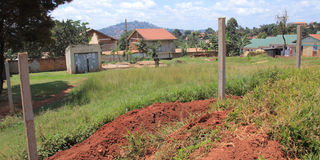Can foreign companies own land in Uganda?

Companies whether owned by foreigners or by Ugandans in the real estate industry should seek legal advice. PHOTO/file
What you need to know:
Nothing in Uganda’s land law stops non-citizens from owning land in Uganda. For most developers, a ninety-nine-year lease often affords them more than sufficient time to develop property, recoup their investments and turn a profit, Alex Matovu writes.
Louis Glickman said, “The best investment on earth is earth.” That statement holds true to this date. Wars have been fought; partnerships hewn; and laws written and repealed, all to determine who can have which piece of earth on what terms.
Only last year, Uganda’s Court of Appeal affirmed the statutory position that non-citizens cannot own land in Uganda except under leasehold tenure. That sounds straightforward enough but there is more. Sometimes it is a company that owns the land. Court in the case of Biyinzika Enterprises Limited and 2 Others Vs Biyinzika Farmers Limited made it clear that a foreign company, like an individual non-citizen, cannot own land under mailo tenure (and by implication freehold and customary tenure). While this does not seem like something to report home about, the Court went further to explain that a foreign company, for purposes of land law in Uganda, is one whose articles of association (constitution) do not contain a restriction on transfer of shares in the company to a foreigner, despite the majority ownership of the company being held by Ugandans.
The reasoning underlying such a decision is the affirmation of the legislative intention to ensure that the domestic market remains more affordable for a country’s own citizens. The Biyinzika case emphasizes that the law tries to avert the possibility of a company owned by Ugandans acquiring freehold or mailo land and then changing ownership to become a foreign company, thereby by-passing the legislative restriction against foreigners owning land under those tenures. This well-meaning policy embedded in Uganda’s Land Act is not unique to Uganda as nearly 40 percent of the countries in the world have some restrictions on foreign ownership of land.
But most companies owned by Ugandans do not have this crucial restriction in their Articles of Association. Therefore, this decision bars most Ugandan-owned companies from holding freehold, mailo and customary land in Uganda.
This begs two questions. First, what happens to those companies whose articles of association do not contain that restriction yet they own freehold or mailo land registered in their names? Secondly, what options exist for the foreign real estate investor in Uganda?
For the first question, it is still arguable whether the Biyinzika decision means the registration of freehold and mailo properties in these companies’ names is an incurable illegality, or an irregularity curable by amendment of articles of association. The judicial imperative of the decision would have to be juxtaposed with the consitituational right to own property, in seeking to answer this question.
Those engaging in real estate trade of any sort with Ugandan owned companies ought to reappraise the kind of due diligence they conduct. Naturally, it has also become imperative for Ugandan owned companies to revisit their articles of association and consider an amendment before they are faced with a sticky situation that may end up in a flurry of losses.
The second question is easier to deal with since the reality remains that nothing in Uganda’s land law stops non-citizens from owning land in Uganda. The Biyinzika case affirmed the bounds within which they can exercise that ownership, namely, under leasehold tenure, with their leases not exceeding ninety-nine years. For most developers, a ninety-nine-year lease often affords them more than sufficient time to develop property, recoup their investments and turn a profit.
But sometimes, a foreign investor may want options that are inhibited by being restricted to having a lease. For such an investor, joint venture arrangements with local freehold and mailo land owners offer apt alternatives. The land ownership in such cases remains in the local joint venture partner who is bound to hold it for whatever purpose has been set out in the Joint Venture Agreement.
Other possible arrangements such as establishing collective investment schemes known as Real Estate Investment Trusts (REITS) regulated by the Capital Markets Authority are available avenues for a foreign investor interested in participating in Uganda’s real estate sector, notwithstanding the restriction on ownership of land other than by leasehold.
The author is managing partner at Signum Advocates.




